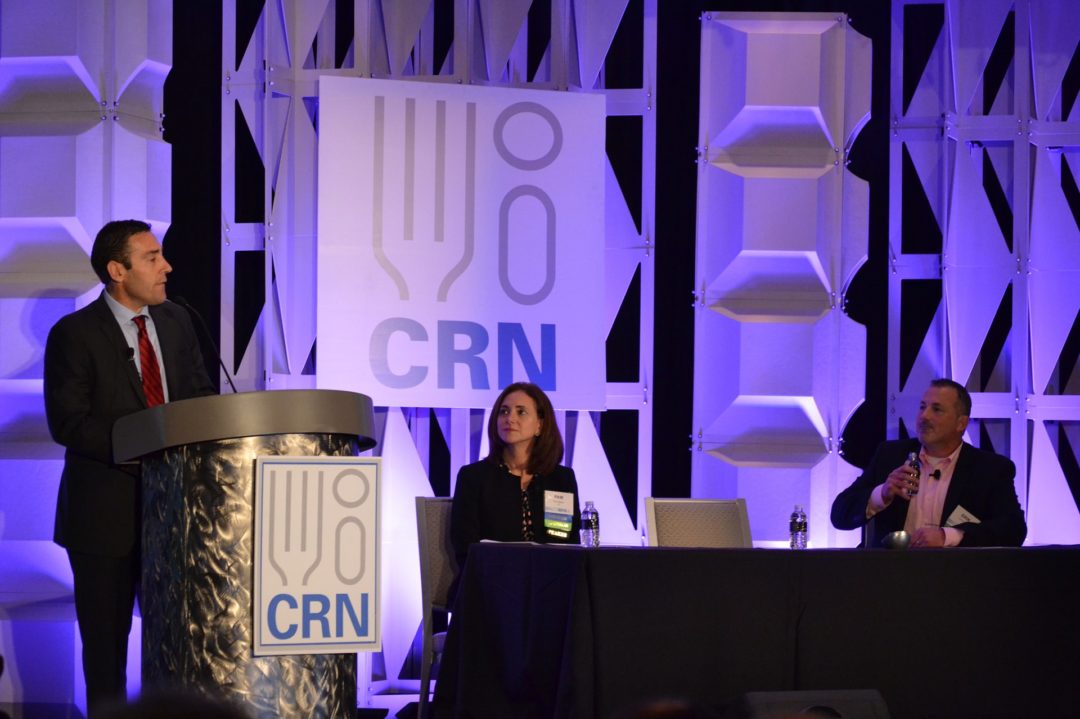
CRN Unveils Supplement OWL

Asreported previouslybyWholeFoods, the intention of the product registry is to allow industry members to demonstrate better transparency and create a registry before it can be created for us by the government. The Supplement OWL is a self-regulatory effort that allows the industry to control the narrative.
OWL has two tiers. At its most basic, finished product manufacturers must provide images of packaging and labels as well as information such as ingredients, brand name, allergen statements and number of servings. This will be viewable to the public. The registry also requires that companies provide manufacturing and packaging facility contact information that will only be accessible to the U.S. Food and Drug Administration (FDA). Each product will have an identification number. Tier 1 is a free service.
The second tier will require payment and is for those finished product manufacturers who want to share additional information such as evidence of quality attributes. Tier 2 also allows the label owner to control who can view this information. In both tiers, label owners control what goes in and out of the database, unlike FDA’s Office of Dietary Supplements Label Database which makes it difficult for label owners to retract the information should there be a mistake.
It’s important to note that the Supplement OWL does not target consumers, though basic information such as that of Tier 1 will be available to the public. This will help consumers and retailers distinguish what companies are willing to practice transparency and put themselves out there. However, the registry is primarily a form of cooperation between industry and regulators where certain information is available to only FDA.
Duffy MacKay, N.D., senior vice president of scientific and regulatory affairs at CRN explained that this was intentional because the trade group wanted to avoid a promotional component characteristic of targeting consumers. This is not how CRN wanted the Supplement OWL to be used.
Additionally, the registry was designed to be a framework which can be built upon. For example, there is currently no form of monitoring of registered products such as random testing. While CRN is trying to determine an appropriate measure to vet companies, this cannot be achieved without board approval. All additional layers to the registry must be approved by the Supplement OWL's board.
Created in partnership with UL, Pam Walker, head of global market development for UL, showcased for the audience the website which was demonstrated to be a functional and highly searchable platform for users. The website is not yet live, but CRN is now accepting product labels for its second phase of beta testing. The first phase of beta testing included nine companies: FoodState, Garden of Life, Glanbia Performance Nutrition, Herbalife, NBTY, Pharmavite, GNC and Herbs, Etc. One company chose to remain anonymous.
These companies were instrumental is helping develop the registry and by opening up the registry for submission prior to its January launch, CRN is hoping that this will help them learn about the streamline the process on a larger scale.

The editorial team at WholeFoods Magazine has decades of experiences reporting on natural products industry news, trends, and more. This national, monthly business-to-business magazine has been published continuously for nearly 40 years (the magazine was founded in 1977, and has been owned by Wainer Finest Communications since 1984). It is the longest-tenured media outlet of its kind in the natural products industry. The editorial focus at WholeFoods Magazine is, and always has been, on informing and educating members of the natural products industry.
The Magazine
Information
About Us
NOTE: WholeFoods Magazine is a business-to-business publication. Information on this site should not be considered medical advice or a way to diagnose or treat any disease or illness. Always seek the advice of a medical professional before making lifestyle changes, including taking a dietary supplement. The opinions expressed by contributors and experts quoted in articles are not necessarily those of the publisher or editors of WholeFoods.







